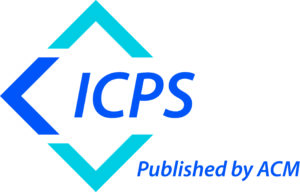La 2ème conférence internationale « Digital Tools and Uses », https://ddh20.sciencesconf.org/ dont le Laboratoire est partenaire, va se tenir en octobre 2020 en Tunisie. Dans ce cadre, Gérald Kembellec organise un Workshop sur les enjeux de la donnée en contexte des humanités numériques. Cet événement est en lien avec la thématique « Data, médiation, valorisation » du Laboratoire, avec des réflexions sur les modèles, les méthodes de traitement des données des humanités : quels sont les particularités disciplinaires, est-il possible et souhaitable de penser cet aspect des humanités de manière interdisciplinaire ?
Les membres du Laboratoire intéressés par le sujet sont invités à se rapprocher de Gérald Kembellec pour toute information complémentaire.
Conférence internationale sur les humanités numériques

TEI et encodage des textes anciens
The digital humanities offer a particularly rich research field of studies for data processing, apart from those of the hard sciences and the social sciences. Indeed, the humanities are rarely subject to privacy principles (privacy by design, GDPR…) that affect most social science works and are not just about digital or binary data. Moreover, in DH the data pre-exist and are most often already known if they are not collected and formalized. In this specific context, we propose in this track to question the practices resulting from the constitution of corpus and uses of data in humanities.
This track is intended to be interdisciplinary to cover various aspects of the humanities that use various models, methods and analyses for the cross-fertilization of knowledge. With regard to the reuse of research-generated data, its implementation is encouraged with developments in open and reproducible science. For example, we propose to analyze links between political and social injunctions to data sharing, the requirements of funding organizations and the reality of Humanities issues. We also wish to discuss methods of controlling the quality of the data whether they are “captured” (i.e. Drucker’s “capta”) or “produced” as well as the possibility of “linking” them with each other and with authoritative organisms, vocabularies, and description schemes.
So, what will be the new uses of research data to consider in Humanities? When and how to prepare to share the data produced? Finally, what are the pitfalls to avoid?
Main topics :
Contributions may address one or more of the following topics
- Visualization of humanities data for the answer to scientific questions (questions of ethics, graphic semiology …).
- Mathematics and humanities (statistics, clustering …).
- Natural Language Processing (NLP) and the humanities.
- Emergence of research questions in humanities through digital methods.
- Cartography and the humanities.
- Data identified and linked in humanities (LOD).
- Methodology and modeling in digital humanities: the importance of maieutic (Socratic method).
- Practices of sharing data from digital humanities.
- Multidisciplinary point of view dealing with humanities’ data: Methodological and epistemic negotiations.
Scientific Committee
- Kmar BENDANA, University of la Manouba, Tunisia
- Frédéric CLAVERT, University of Luxembourg, Luxembourg, Luxembourg
- Marija DALBELLO, Rutgers School of Information and Communication, United States
- Frédéric DARBELLAY, University of Genève, Switzerland
- Martin GRANDJEAN, University of Lausanne, Switzerland
- Olivier LE DEUFF, University of Bordeaux-Montaigne, France
- Ingrid MAYEUR, University of Liège, Belgium
- Xavier-Laurent SALVADOR, University of Villetaneuse, France
- René SCHNEIDER, HEG-SO, Genève, Switzerland
- Dominique TRUDEL, UQAC, Canada
- Marcello VITALI-ROSATI, University of Montréal, Canada
- Eveline WANDL-VOGT, Austrian Academy of Sciences, Austria
Bibliography
- Abiteboul, S., & Dowek, G. (2017). Le temps des algorithmes. Le pommier.
- Bailey, C. D. (2014). Psychopathy, Academic Accountants’ Attitudes toward Unethical Research Practices, and Publication Success. The Accounting Review, 90(4), 1307‑1332. https://doi.org/10.2308/accr-50970
- Bertin, J (1967) Sémiologie Graphique. Les diagrammes, les réseaux, les cartes. With MarcBarbut [et al.]. Paris: Gauthier-Villars. (Translation 1983. Semiology of Graphics by William J. Berg).
- Borgman, C. L. (2010). The digital future is now: A call to action for the humanities.
- Busa, R. (1974). Index Thomisticus Sancti Thomae Aquinatis Operum Omnium Indices Et Concordantiae in Quibus Verborum Omnium Et Singulorum Formae Et Lemmata Cum Suis Frequentiis Et Contextibus Variis Modis Referuntur.
- Busa, R. (1980). The annals of humanities computing: The index thomisticus. Computers and the Humanities, 14(2), 83–90.
- Cardon, D. (2015). A quoi rêvent les algorithmes. Nos vies à l’heure du Big Data. Paris: Le Seuil.
- Castets-Renard, C., & Gandon, N. (2016). Open data des données de la recherche publique : entre réformes législatives et retour d’expérience sur un guide pratique à destination des chercheurs. LEGICOM, N° 56(1), 67‑75.
- Drucker, J. (2011). Humanities approaches to graphical display. Digital Humanities Quarterly, 5(1), 1–21.
- Gandon, F., Sabou, M., & Sack, H. (2017). Weaving a Web of linked resources. Semantic Web, 8(6), 767-772.
- Gingras, Y. (2018). Les transformations de la production du savoir : de l’unité de connaissance à l’unité comptable. Zilsel, 4(2), 139‑152.
- Kaplan, F. (2015). A map for big data research in digital humanities. Frontiers in digital humanities, 2(1).
- Kembellec, G., & Broudoux, E. (Eds.). (2017). Reading and Writing Knowledge in Scientific Communities: Digital Humanities and Knowledge Construction. John Wiley & Sons.
- Lemercier, C., & Zalc, C. (2019). Quantitative Methods in the Humanities: An Introduction. University of Virginia Press.
- McCarty, W. (2016). Collaborative research in the digital humanities. In Collaborative Research in the Digital Humanities (pp. 13-22). Routledge.
- Molloy, J. C. (2011). The open knowledge foundation: open data means better science. PLoS biology, 9(12), e1001195.
- Schöch, C. (2013). Big? smart? clean? messy? Data in the humanities. Journal of digital humanities, 2(3), 2-13.
Les actes de la conférence seront publiés et largement diffusés via la plateforme éditoriale de la société savante ACM.

ACM International Conference Proceedings Series
